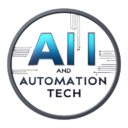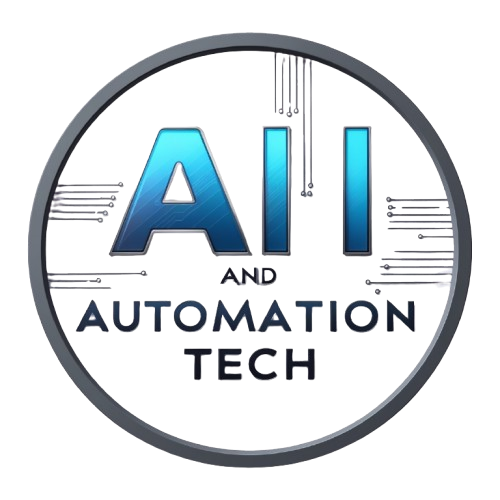Are you tired of tedious manual tasks and inefficient workflows? AI-based automation platforms are the solution you’ve been looking for! By harnessing the power of artificial intelligence, these platforms can streamline your workflow, increase productivity, and reduce costs.
In this post, we’ll explore the benefits and types of AI-based automation platforms, as well as best practices for implementing them in your organization.
Introduction to AI-Based Automation Platforms
The AI-based automation platforms market is rapidly evolving, with various platforms offering unique features and benefits.
Understanding the concept of AI-based automation and its applications is crucial for businesses seeking to improve efficiency and competitiveness.
AI-based automation platforms use machine learning algorithms to analyze data, identify patterns, and make predictions, enabling tasks to be performed with minimal human intervention.
This technology can be applied to various industries, including manufacturing, healthcare, finance, and customer service.
By leveraging AI-based automation, businesses can reduce costs, increase productivity, and enhance customer satisfaction.
As AI technology continues to advance, we can expect to see even more innovative applications of AI-based automation platforms in the future.
The Benefits of Implementing AI-Based Automation

The benefits of implementing AI-based automation platforms are numerous and varied.
By automating routine tasks, businesses can reduce costs, increase productivity, and free up staff to focus on more strategic activities.
Additionally, AI-based automation can provide personalized customer service, enabling businesses to build stronger relationships with their customers.
AI can also analyze large amounts of data, providing valuable insights that can inform business decisions.
Furthermore, AI-based automation can help businesses to identify and mitigate risks, ensuring compliance with regulatory requirements and reducing the likelihood of errors.
By implementing AI-based automation, businesses can gain a competitive edge, improve operational efficiency, and drive growth and innovation.
Types of AI-Based Automation Platforms
AI-based automation platforms come in various forms, each with its unique features and applications.
Rule-based systems use predefined rules to automate tasks, while machine learning-based systems use algorithms to learn from data and improve over time.
Natural language processing (NLP) systems enable chatbots and virtual assistants to understand and respond to customer inquiries.
Predictive analytics systems use historical data to forecast future outcomes and inform business decisions.
Hybrid systems combine multiple AI technologies to create a comprehensive automation solution.
By understanding the different types of AI-based automation platforms, businesses can choose the best solution for their specific needs and goals.
Best Practices for Implementing AI-Based Automation

When implementing AI-based automation platforms, it’s essential to follow best practices to ensure a successful deployment.
Start by identifying areas where AI can add the most value, such as automating repetitive tasks or improving customer service.
Conduct a thorough assessment of your current systems and processes to determine where AI can be integrated.
Develop a clear plan and timeline
for implementation, and establish a team to oversee the project.
Monitor and evaluate the performance of AI-based automation
regularly to identify areas for improvement and optimize results.
By following these best practices, businesses can ensure a smooth and successful implementation of AI-based automation platforms.
Conclusion and Future Outlook
The future outlook for AI-based automation platforms is promising, with continuous advancements in technology and increasing adoption across industries.
As AI becomes more prevalent, businesses that fail to adapt may struggle to remain competitive. On the other hand, those that successfully implement AI-based automation platforms can expect significant benefits, including increased efficiency, improved customer satisfaction, and enhanced decision-making capabilities.
As AI continues to evolve, it’s essential for businesses to stay informed about the latest developments and best practices for implementation. By doing so, they can ensure they remain ahead of the curve and continue to reap the rewards of AI-based automation.
FAQ – Frequently Asked Questions about Artificial Intelligence in Small Business
What are some benefits of automating tasks in my small business?
Automating tasks can free up your team from repetitive tasks, increasing productivity and allowing them to focus on more strategic activities.
What are some tools I can use for data analysis?
There are many tools available, such as Google Analytics, Tableau, and Microsoft Power BI, that help collect and interpret valuable data.
What are chatbots and how do they improve customer service?
Chatbots are virtual assistants that can answer questions and solve problems at any time, improving the customer experience and freeing up your team.
How can I personalize the customer experience?
Through data analysis, you can understand better what customers prefer and offer personalized recommendations and promotions.
Why is customer feedback important?
Feedback is essential for identifying areas that need improvement and adjusting your service strategy, ensuring customer satisfaction.
Is artificial intelligence accessible for small businesses?
Yes, there are many affordable and scalable AI solutions available that small businesses can implement to improve efficiency and service.




